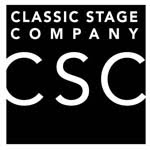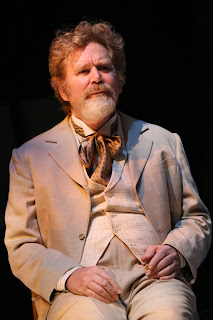This is my fourth season.
Tell us about what you do on a daily basis:
Tell us about what you do on a daily basis:
Many people do not realize that CSC is a not-for-profit organization, which means that ticket sales cover only a portion of the actual costs of putting such wonderful works on our stage. The rest comes from contributions. That’s where I come in—I handle the fundraising for CSC. That includes writing grant proposals, meeting with individual donors, keeping up with reporting requirements, and ensuring that all of our contributors receive their proper benefits. You may have seen me in the lobby greeting people just before a performance, or at one of our Patron Night or Opening Night events. Stop by and say hello!
What did you do prior to joining CSC?
What did you do prior to joining CSC?
I worked in government and foundation relations as the Manager of Development Initiatives at the New Jersey Performing Arts Center in Newark. Before that, I did some stage management and production work for TimeLine Theatre in Chicago, and before that, I completed a PhD in Theatre History at the University of Illinois at Urbana-Champaign.
What has been your favorite CSC production to work on?
What has been your favorite CSC production to work on?
This is a toughie. But I think I’ll have to go with THE SCHOOL FOR LIES, because that was the only one for which I’d been able to see the full progression from page to stage. I was familiar with the source material (Molière’s THE MISANTHROPE); I was able to attend the “table read,” where the actors met and read through the play for the very first time together and the designers talked through their concepts; and then of course I saw the actual production. Not once, but twice. And I laughed like crazy both times.
What is your favorite classical work?
What is your favorite classical work?
HAMLET. Oh, such wonderful soliloquies!
What do you like to do in your free time?
I read a lot, and I try to catch as much good theatre as I can.
What is your favorite color?
What is your favorite color?
Red. Maybe because I look really good in red.
What is your favorite book?
John Irving’s A Prayer for Owen Meany.
Favorite neighborhood spot?
The Strand. 18 Miles of Books! If I were a ghost, I would gladly haunt that place for eternity.
Favorite neighborhood spot?




